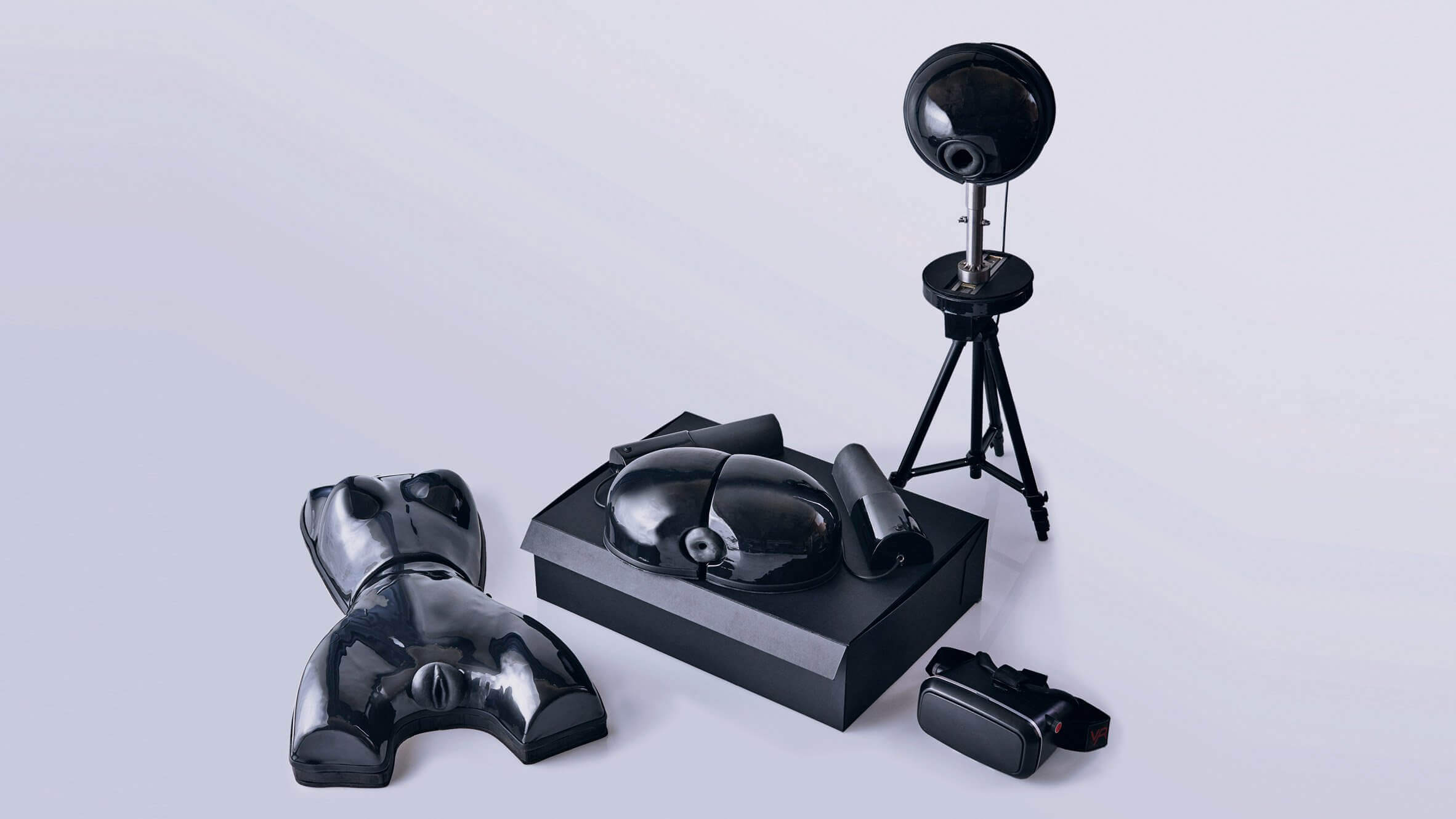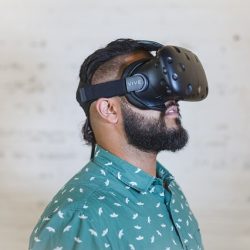Designer Says VR Kit May Help People with ‘Extreme Sexual Fantasies’
Can we use virtual reality to prevent people from becoming predators?

It’s becoming clear that we are not just entering a new era of taboo-shattering erotic devices, but also using technology to address some fundamental questions about human sexuality.
Marta Dunjó, a design student at Central Saint Martins in London, hopes to ignite discussions about virtual reality sex and whether using it to explore “extreme sexual fantasies” such as rape may potentially rehabilitate offenders or trigger them to attack. To do so, she has created a concept for a set of virtual reality sex accessories, which include orifices covered in United Kingdom’s definition of rape.
Dunjó’s assortment of hypothetical devices resembles, if anything, a black latex assortment of body parts and accompanying offices: a female torso, a posterior-in-a-box, a globe sporting a hole, two controllers and—as the concept is imaged as working with virtual reality—a pair of VR goggles.
A concept for discussion
Speaking to dezeen, she said: “I focused more on the objects that would facilitate the rape experience in VR rather than the experience itself.”
What’s particularly unique about Dunjó’s concept is that it is a representation of the discussions around virtual reality and sexuality: instead of being just hardware, it is designed to draw attention to questions about the impact of technology and sex.
Talking about the need to try and anticipate the impact of things like virtual reality she says, “If current hardcore pornography were to move into a virtual domain tomorrow, what would be the impact on society? Would deviant sexual behaviour be encouraged or would it simply just become a mechanism to explore and entertain sexual fantasies that are illegal and immoral in the virtual world?”
Talking it out
Dunjó’s concept further opens the debate about whether or not creating virtual reality or robotic technology to meet socially unacceptable sexual practices could cause users to pursue it in real life.
The benefit this brings is instead of trying to legislate against actually creating something like her Visual X Kit, those on the other side of the discussion could feel as if they are being communicated with and not simply demonized. In the end, this could potentially bring about more effective discussions and perhaps policy or legislation, if necessary, that doesn’t overstep the mark.
Virtual reality as social and sexual growth?
As Dunjó says, “Early research in VR proves that there are certain experiences that have an impact on the human psyche, so through my project, I wanted to understand what would be the impact in our society of accessing certain extreme sexual fantasies in VR–in this case, rape.”
In the end, what Dunjó is doing is what’s needed more than ever: not a new bit of sexual technology but a concept that hopefully will draw much-needed attention to the many ethical questions around virtual reality and robotics.
Image sources: Central Saint Martins: News
Leave a reply
You must be logged in to post a comment.

















